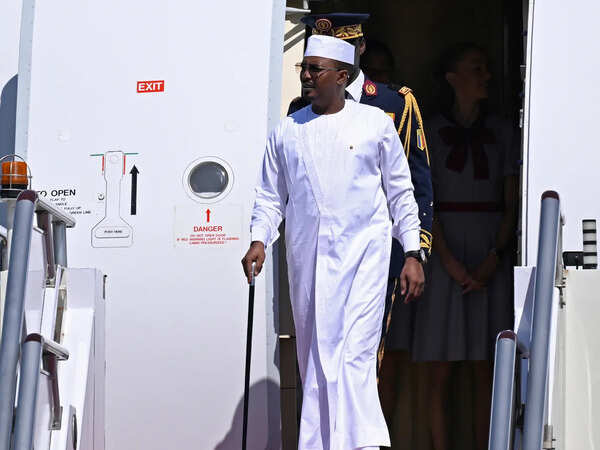Chad Responds to U.S. Travel Ban with Visa Suspension
The government of Chad has announced a halt to all visa services for U.S. citizens, a decision characterized by President Mahamat Idriss Déby Itno as a matter of national dignity and a reciprocal measure following a recent travel ban imposed by the United States on several countries, including Chad.
Chad’s Reaction to the Travel Ban
In a Facebook post, President Déby expressed Chad’s frustration with the U.S. decision, stating, “Chad has neither planes to offer nor billions of dollars to give, but Chad has its dignity and pride.” His comments come as part of a broader backlash against the travel restrictions that target citizens from 12 countries.
The U.S. travel ban, which is scheduled to take effect on June 9, prohibits nationals of Chad, Afghanistan, Libya, Somalia, Sudan, and several other nations from entering the United States. President Trump defended the measure as necessary for protecting American citizens from potential threats.
Affected Countries and Travel Restrictions
The travel ban disproportionately impacts Africa, with seven of the twelve listed countries situated on the continent. The nations affected alongside Chad include:
- Congo-Brazzaville
- Equatorial Guinea
- Eritrea
- Libya
- Somalia
- Sudan
The restrictions also extend to nationals from countries such as Burundi, Sierra Leone, Togo, Cuba, Laos, Turkmenistan, and Venezuela, although these nations face specific visa limitations rather than a complete ban.
Global and Local Reactions
Chad’s Foreign Minister Abdoulaye Sabre Fadoul expressed his country’s surprise at the ban, highlighting Chad’s ongoing efforts to combat terrorism and maintain security. Meanwhile, the African Union has voiced concerns regarding the implications of this ban, urging for a more diplomatic engagement from the U.S. toward the affected countries.
International responses have varied, with some nations taking proactive stances. The Somali government, for example, pledged cooperation with the U.S. to resolve any security concerns highlighted by the ban. Somali Ambassador to the U.S., Dahir Hassan Abdi, stated that Somalia “values its longstanding relationship with America.”
Voices from Affected Citizens
The repercussions of the ban have been felt deeply among citizens of the affected nations. Many Eritreans have voiced their concerns over the implications of the travel restrictions. One Eritrean, speaking anonymously, articulated the hardships faced by individuals seeking refuge: “As Eritreans, we’ve already suffered under our regime at home, and now we’re facing the same hardship under Trump’s immigration policies. We’ve endured so much pain.”
Travel Ban Details
The travel ban includes exemptions for certain individuals such as dual nationals and athletes participating in significant events like the 2026 FIFA World Cup and the 2028 Summer Olympics in Los Angeles. The White House has stated that these restrictions are based on a lack of proper documentation and screening by the governments of the listed countries, which often suffer from instability and civil unrest.
Table: Overview of U.S. Travel Ban Countries
| Country | Status |
|---|---|
| Chad | Visa suspension |
| Libya | Visa suspension |
| Somalia | Visa suspension |
| Sudan | Visa suspension |
| Eritrea | Visa suspension |
| Congo-Brazzaville | Visa suspension |
| Equatorial Guinea | Visa suspension |
As backlash against the travel ban grows, it is anticipated that the measures could face legal challenges, reminiscent of previous travel bans initiated during Trump’s earlier term in office. The ongoing debate highlights the complexities surrounding immigration policies and global security perceptions.


